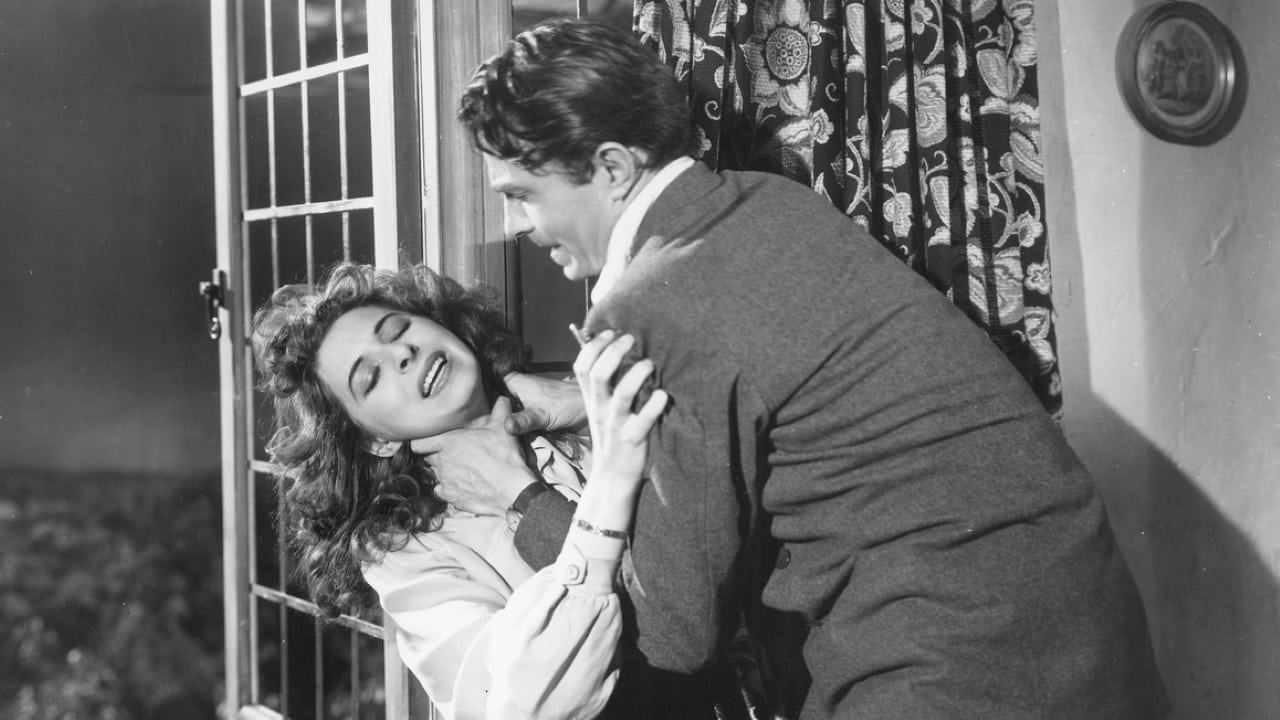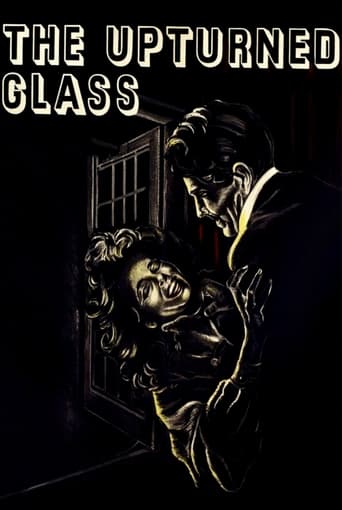Roy Hart
If you're interested in the topic at hand, you should just watch it and judge yourself because the reviews have gone very biased by people that didn't even watch it and just hate (or love) the creator. I liked it, it was well written, narrated, and directed and it was about a topic that interests me.
Lidia Draper
Great example of an old-fashioned, pure-at-heart escapist event movie that doesn't pretend to be anything that it's not and has boat loads of fun being its own ludicrous self.
Phillipa
Strong acting helps the film overcome an uncertain premise and create characters that hold our attention absolutely.
clanciai
This is a very unusual and intelligent thriller, like most thrillers involving doctors usually are. It is the first of James Mason's very few own productions and features his own wife, Pamela Mason, here Pamela Kellino, as the second of the two ladies he is involved with, both of them leading to disaster. The intrigue cleverly leads astray at times while at the same time it sharpens as the doctor (James Mason) finds his own case constantly more crucial. He stages a kind of mock trial with himself by giving a lecture at the medical theatre with all rows filled with young attentive students, and one student almost sees through his show and sharpens his case even further. Is he in control or is he not? Has he the right to judge what's right or wrong or has he not? The film poses many questions, and the questioning becomes increasingly more critical, until in the end he is faced with the final trial as a doctor, when an emergency calls on him to perform one more brain surgery. It's the doctor who assists him who puts him to the final test, and these scenes are the most interesting and important in the film. James Mason as the doctor has no other choice than to be consistent with his own argument and conclude his own case after having received an understated sentence by his elderly colleague. It's a remarkable film, not for its direction, which could have been better, but for its very thought-provoking story with the presentation of a case which not even doctors could in any possible way be called upon to give a fair judgement of. The tragedy of this case is that James Mason, one of the best actors ever, a constantly brooding romantic hero, more Hamletian than Byronic, has no other choice, which probably no one could reasonably disagree with.In addition, you can't help recognizing some details here from other, later films, that boast its influence, especially Hitchcock's "Vertigo", displaying the identical problem of a man's involvement in two women related with each other, Hitchcock much developing the theme to an equally crucial crisis but in another direction, while the very vertigo scenes Hitchcock must have got the idea of from here.It should also be noted, that John Monaghan, the script writer, appears as an extra (the truck driver), He made some similar appearances in some films, but this is the only film he wrote, with Mrs Mason as co-script writer. The intrigue with its complications and arguments is so psychologically interesting, that you find more in it each time you see it. For that reason, in spite of its flaws, I will give it a full 10.
mark.waltz
As a popular British criminologist, James Mason tells a class full of intrigued students about a supposedly sane man who plotted murder over revenge. Over the first hour, the writers present a very intriguing case involving a doctor who saves a young girl on the operating table then falls in love with her mother. He plots revenge when the young woman dies mysteriously after falling out of a second story window in her house. All is fine for the first two thirds of the movie until the true crime comes to light and a plethora of incidents occur that take the screenplay all over the place. While the movie is beautifully filmed and is interesting throughout, the last 15 minutes of the movie take a lot of dramatic license in wrapping the story up. Mason is mesmerizing as always, but the title really has nothing to do with the plot. For film noir fans, there are many elements there of that genre, including some dark and moody photography and a femme fatal that will go down as one of the most unlikable in film history.
bkoganbing
James Mason in one of his last British films before accepting that contract with MGM and leaving for America plays a doctor who may have become too detached from life. A prominent brain surgeon he accepts the case of young Ann Stephens whose eyesight he saves with a delicate operation. In the process he falls in love with Ann's mother Rosamund John.Both Mason and John are separated from their respective spouses and we never meet either of them in The Upturned Glass. But their relationship contains a mixture of guilt for both of them. Shortly after they end things, Mason hears that John falls to her death in her own home.Mason had already met Pamela Kellino and formed a bad opinion of her almost immediately. She's Rosamund's sister-in-law and Stephen's aunt and she's a selfish materialistic woman, a regular Cruela DeVille in real life. She's easy too hate and Mason courts her to get close.The film is told about 2/3 of the way in flashback as Mason lectures to a university class on the atypical murderer, the sane and logical one which he naturally takes himself to be. The rest of the film is a revealing portrayal of how Mason should be seen.The Upturned Glass is a nice bit of melodramatic noir with Mason really carrying this film. His perfect performance makes The Upturned Glass seem far better than it really is.
mevolve
It's almost parody, when you are immersed into a dark, forbidding noir world -- populated by proper English gentry. But THE UPTURNED GLASS is a superior crime piece, with a distinctive English taint. That taint being, essentially, the story of a respected brain-surgeon with a very staid life of drawing room seclusion and introspection -- read, the image/stereotype of the ideal British "gentleman" -- who chooses to exit his world of detached observation, to exact justice in a personal matter. In a nutshell: James Mason plays a brain surgeon, who recounts in a lecture, an incident of crime to a university class. In flashback, we see his affair with a married woman (Rosamund John) after treating his daughter, and their mutual breaking off of the engagement. Later, when she "falls from a window," Mason suspects murder. We see the details of his plan to revenge himself on his lover's sister (Pamela Mason), and everything goes exactly as planned. But when it comes to actually committing the act, it does not go so smoothly.... Brefini O'Rourke and Mason engage in an interesting debate at the close of the movie, that lays out the pertinent moral dilemma (as well as the significance of the title): Do we do what is right because it is right, or do we do it because of personal gain, flaws, obsessions, etc.? A theme which would be echoed later, and very closely to THE UPTURNED GLASS's method (and much more horrificly), in both versions of THE VANISHING. Mason ends this movie, on the edge of the cliffs over Dover beach, where there lies "no certitude, nor peace, nor help for pain," as Matthew Arnold sees it: Mason ends his long day of murder and things gone terribly awry in blind ignorance, alone and -- as the camera does not even pick up his final fall or his broken body -- forgotten, lost. Mason and his wife (who co-produced and co-wrote respectively) were experimenting with structure in THE UPTURNED GLASS; the result is an interesting story that feels to be told in two parts. It takes its time to build (ever a British trait), but once the story gets going, it is relentless in its tension; especially during the twenty-minute or so sequence where Jason Mason attempts to escape with Pamela Mason's body. Though it's a green and pleasant land we are moving through here, the camera's eye chooses only to see it through a lens darkly, and starkly: an empty house of shadows, a chapel that is all but a ruin of shadows, fog-lit moorish wastes, the good doctor's own living quarters practically infested with shadows itself. James Mason is phenomenal, taking a role where he is ever so slightly detached from whatever scene is at hand. Paranoia seems to be part and parcel of his make-up, and often throughout the movie, it appears as if we are often seeing events as *he* sees them: students asking questions, party-hosts with probing eyes, a good country doctor staring at you through his spectacles -- every one of them might be doing more than just looking at you, they might very well be looking *through* you... probing you, inspecting, judging. We never know if his lover really *was* murdered in the end, or if she jumped volunatarily, or if it really were simply an accident after all. Mason's scheme doesn't allow, or worry, about that at all: his is an inchoate vengeance, directed at nobody in particular, not even fate, really. Pamela Mason is simply the most readily available target for a fatal flaw, as was the poor girls that book-end the movie: the nameless, faceless one hit by the lorry at the end, or the young daughter a victim of a brain-splinter at the beginning. In the sudden climax of THE UPTURNED GLASS, no one knows anything for sure -- not love, not hate, and hardly anything like certainty... we are all just rocks, washed up on an empty beach, "where ignorant armies clash by night...."

